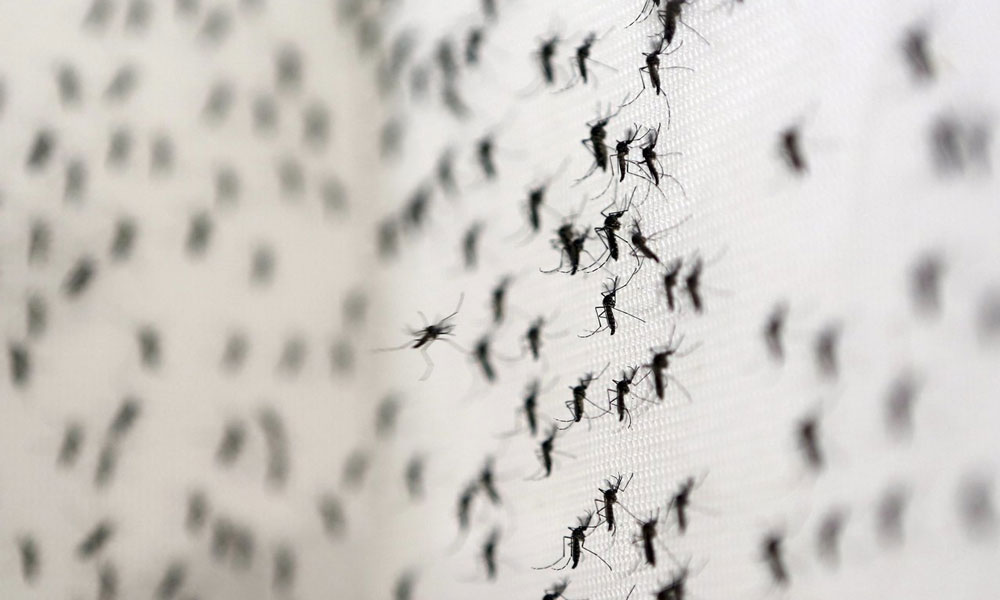
Beyond Zika: On the Infectious Disease Front Lines
In recent weeks, the Association of Public Health Laboratories has found itself dealing with the Zika virus, which the World Health Organization recently declared a international public health emergency. But even if the association and its members were dealing with a public health situation that wasn't getting Zika's level of attention, they'd still be out front, dealing with potential health risks.
In recent weeks, the Association of Public Health Laboratories has found itself dealing with the Zika virus, which the World Health Organization recently declared a international public health emergency. But even if APHL and its members were dealing with a public health situation that wasn’t getting Zika’s level of attention, they’d still be out front, dealing with potential health risks.
This week’s decision by the World Health Organization to designate Zika a public health emergency shows that the United Nations agency is willing to learn from its previous mistakes.
With evidence suggesting, but not directly showing, that the mosquito-borne Zika virus is related to an outbreak of the neurodevelopmental disorder microcephaly, WHO Director-General Margaret Chan noted that the risk level is high enough to be considered grave—especially as evidence grows that the disease can be spread through other means, including sexual activity.
“A coordinated international response is needed to improve surveillance, the detection of infections, congenital malformations, and neurological complications, to intensify the control of mosquito populations, and to expedite the development of diagnostic tests and vaccines to protect people at risk, especially during pregnancy,” Chan said in a statement.
Scott Becker, executive director of the Association of Public Health Laboratories (APHL), welcomed the declaration. He praised the U.S.-based Centers for Disease Control and Prevention for speaking up about specific concerns regarding the disease, which has spread through a number of South American countries in recent months.
“We were ahead of the WHO,” Becker said. “But the fact that the WHO came together so quickly in an emergency meeting and made the declaration will, in the long run, be a very good thing.”
Becker said the declaration will improve information-sharing globally and ensure that countries take steps to better tackle the spread of the disease. He added that the criticism the WHO received for its delayed response during last year’s Ebola outbreak in West Africa was “deserved.”
Ready to Respond
But while the Zika virus may be in the headlines at the moment, APHL its members would be out front responding to the rise of any disease or public health risk, regardless of its news profile.
The association, which has existed for more than 65 years and has more than 850 members, focuses on a wide range of illnesses, whether infectious, foodborne, or environmental. Its members, for the most part, represent state- and local-level laboratories. And while APHL is itself structured like an association, it also comprises laboratory elements, allowing the group to help deal with potential health risks.
“Zika is one more of those things—yes, it’s getting a lot of attention—but [our members] are also going to be doing a lot of water testing,” Becker said, referring to the recent crisis in Flint, Michigan, where lead was discovered in the city’s water supply.
APHL uses a variety of tools to keep itself and its members ahead of the spread of diseases, including social and media monitoring software. That software came in handy during the H1N1 “swine flu” outbreak in 2009, when the association discovered that the disease was likely to spread to the U.S. a week before it actually did.
“We begin to think about the what-ifs earlier than certainly the general public,” Becker noted.
APHL makes an email hotline available for triage situations, and it trains its employees in an Incident Command Structure system, so that if the association needs to play a direct-response role in a public health crisis, it can. Even employees who aren’t in medical roles receive such training so they can assist with the response.
“That’s what we go back to—it’s helping our members do their job, and their job is responding to the community. We can bring coordination, we can bring the best science to bear from across the country,” Becker said.
(Paulo Whitaker/Reuters)






Comments